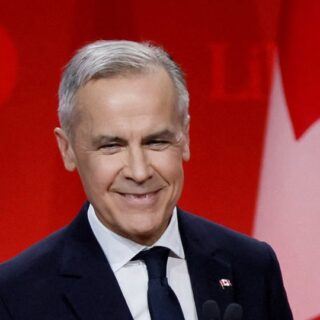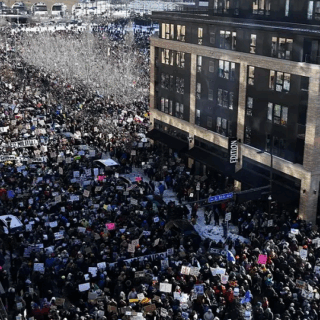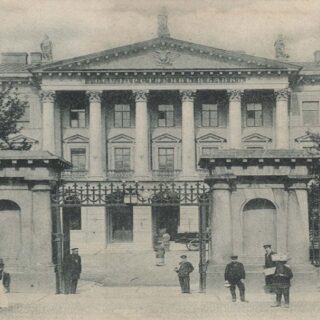
What makes terrorism in the Russian Empire between 1866-1911 somewhat unique in the history of European and world terrorism was the massive sympathy and support terrorists received from many members of educated society.
Thousands of law-abiding people in the Russian Empire could always justify left-wing terrorism or support terrorists by providing them with money or false papers or hiding places.
As I have argued in many articles, terrorism in the Russian Empire was a derivative or byproduct of the strained relationships between government and educated society.
More specifically, terrorism turned into a massive single-handed combat between the autocracy (tsarist form of government) and the intelligentsia, the most politically active sector of society. Many long-term factors came together to create virtually ideal conditions for the development of mass terrorism in the Russian Empire.
The origins and development of terrorism were shaped by specific historical conditions in Russia in the years following the emancipation of the serfs. Terrorism was part of the major question that preoccupied the government and society about the political development of Russia — whether Russia would become a constitutional liberal European state or whether it would stay uniquely Russia.
While Russia was becoming a European state economically during the post-reform period, in many respects, the political differences between Russia and Europe widened and became the long-term causes of terrorism, the disastrous experience of World War One, and the collapse of state and society in the revolutionary year of 1917.
Among the factors creating perfect conditions for terrorism was the relationship between the government and educated society and the level of legal consciousness of both the government and society.
An attitude of mutual mistrust characterized much of the relationship between the autocracy and society and certainly was a factor in the widespread acceptance of terrorism by many members of the political classes. As L.D.Trotsky noted <<Individual terror as a method for political revolution is our Russian ‘national’ contribution. Of course, the killing of ‘tyrants’ is almost as old as the institution of ‘tyranny’ itself; and poets of all centuries have composed more than a few hymns in honour of the liberating dagger.
But systematic terror, taking as its task the elimination of satrap after satrap, minister after minister, monarch after monarch — ‘Sashka after Sashka’ (a diminutive referring to the two tsars Alexander II and III), as an 1880s Narodnaya Volya (People’s Will) member familiarly formulated the programme for terror — this kind of terror, adjusting itself to absolutism’s bureaucratic hierarchy and creating its own revolutionary bureaucracy, is the product of the unique creative powers of the Russian intelligentsia.
Of course, there must be deep-seated reasons for this — and we should seek them, first, in the nature of the Russian autocracy and, second, in the nature of the Russian intelligentsia.>>[1] Trotsky was repeating Vladimir Lenin’s assertion that terrorism was a specifically intelligentsia form of political struggle. However, he is correct in describing the government and society as two separate entities with an antagonistic relationship.
Liberals and socialists saw themselves as constituting society [общество]. Society expressed its views through public opinion [общественность] and this term was generally understood as referring to liberal or socialist opinion in opposition to the government. Liberal and socialist parties and movements formed the leadership of the movement of society [общественное движение].
The term could be used in a broader sense to include youth movements, women’s movements, and movements of the non-Russian minorities, peasants, and workers since these movements were generally liberal or socialist. However, the term generally excluded reactionary and conservative movements, even if these movements opposed the government. The term movement of society was, in reality, a coded term for liberation movement [освободительное движение].
Liberals and socialists tended to refer to the government as the authorities [власти]. The juxtaposition of власти/общество is understood in a sense of <<them against us>>. Implied by this juxtaposition was that the educated classes were not responsible for the government’s actions because the government did not allow them to participate in the running of the country. Members of society were absolved of responsibility in the government’s policies and actions. The contrast explained the willingness of the intelligentsia and society to serve as perpetual critics of any government without taking the responsibility of governing the country.
A <<them against us>> mentality shaped how many government officials regarded educated society. A noticeable aspect of the Russian government’s view of its population was its inherent mistrust of any public initiative. This happened in a time when many European governments mobilized bureaucracies, armed forces, educational systems, the media, public organizations, and religious organizations to enable populations to actively support government policies and to see themselves as citizens with responsibilities.
Tsars and many officials suspected even conservative and far right groupings of having their own agendas of limiting the Tsar’s power or demanding a constitution to give more power to the nobility. These fears intensified after the emancipation of the serfs. The predominance of nobles in far right, conservative, and liberal movements could be interpreted that agitation for a constitution or greater role for the gentry in state affairs was the nobility’s way of getting back at the government for emancipating their serfs and stripping them of their economic and political power.
This suspicion applied to members of public groupings, such as the Sacred Brotherhood in 1881 and Union of the Russian People in 1905 who supported unlimited autocracy. While European governments often regarded the nobility as the most loyal section of the population, Russian bureaucrats could, with some justification, regard nobles as politically unreliable especially since the Decembrist uprising of 1825 had been led by nobles and since many liberals and socialists before 1917 came from noble families. However, this inherent mistrust of any public initiative meant that the government could not expect to mobilize a broad range of support in a war against terrorism and opposition activity.
Another long-term factor in ensuring virtually ideal conditions for the development of mass terrorism was the low level of legal consciousness among many members of the government and educated society. A major difference between Europe and the Russian Empire was in legal consciousness — respecting legal and moral restraints placed upon state and society. It has been said that the difference between European countries and Russia was that in Europe, everything was permitted except that which was specifically forbidden while in Russia, everything was forbidden except that which was specifically permitted.
In practice, this meant that Europeans were either aware of or were expected to be aware of forbidden boundaries in law and morality. This was generally the case in Europe until 1914 with the exceptions being individuals and groups on the extreme right and extreme left who maintained that the whole existing order deserved to be destroyed and that legal and moral restraints did not apply. A mass breaking down of restraints, particularly in killing, began with World War One.
In Russia, thousands of laws and regulations governed most aspects of life. This gave the impression that boundaries were extremely rigid and that virtually everything was forbidden.
Actually, disdain for these boundaries and eagerness to cross these boundaries, whenever politically expedient, were shared by the official establishment — the Tsar and his government; by the counter-establishments of liberals and socialists; by conservatives and rightists who could either oppose or support the government depending upon their political agendas.
Terrorism became extremely useful for all sides in the conflicts between the government and society to advance their agendas and goals.
What made the Russian government’s work in suppressing terrorism and any type of subversive activity even more difficult was its inability and unwillingness to mobilize support, especially from the political classes, in supporting its policies and laws. At best, the government preferred that the population refrained from breaking the laws.
As Jonathan Daly noted << The Imperial government expected and demanded no more than reliability from Russian subjects; it wanted to rely on them not to engage in activities harmful to the state’s interests but did not expect them to lend active support to the state. They were free to hold opinions at variance with those of the government, perhaps even to express these opinions in some veiled or moderate form, but were not supposed to utter them loudly or forcefully. In a word, mere dependability was sufficient. By contrast, many Russian revolutionaries and, later, the Soviet government expected — and in some cases demanded — trustworthiness.>>[2]
No government can win a war against terrorism with an attitude of disdain for public opinion. By contrast, the socialist counter-establishment made sure that members of society were continually reminded of the numerous martyrs for the cause of liberation and that abandonment of terrorism and any opposition activity was a betrayal of the martyrs’ legacy.
The continual <<us against them>> mentality of the tensions and conflicts between the government and educated society ensured that the government would always lose its war against terrorism.
References
- Trotsky, Leon. The Bankruptcy of Individual Terrorism. 1909
https://www.marxists.org/archive/trotsky/1909/xx/tia09.htm
- Daly, Jonathan W. Autocracy under siege: security police and opposition in Russia, 1866-1905. DeKalb IL: Northern Illinois University Press, 1998, c. 68.





